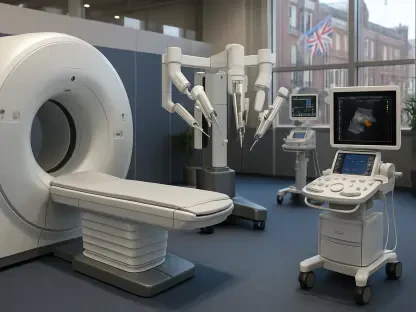An in-depth investigation by KFF Health News into the practices of Catholic-run hospitals across the United States has revealed an overarching conflict: the tenets of religious doctrine versus the necessities of comprehensive reproductive health care. This extensive examination, built on nearly two years of meticulous research, spotlights the profound and often distressing challenges that patients and their care providers must surmount when faced with religious-based limitations on vital health services. The findings expose the schisms created by the implementation of rigid ethical and religious directives within hospitals, shaping an environment wherein medical procedures, especially those relating to reproductive health, are encumbered or entirely inaccessible due to faith-guided policies.
Impact of Religious Directives on Patient Care
Within the walls of Catholic hospitals, medical practitioners are frequently compelled to reconcile their professional judgment with the moral frameworks dictated by religious authorities. These ethical and religious directives dramatically influence the treatment options available, particularly in contexts like pregnancy complications. A striking case from the KFF Health News report detailed a scenario in which a pregnant patient, facing the distressing reality of carrying a nonviable fetus, was barred from obtaining a termination purely because the hospital’s governance adhered to Catholic directives, which precluded such interventions. This is a flagrant departure from standard medical care that would be anticipated elsewhere.The fallout from such religious ordinances spills over into the provision of other reproductive services. Clinicians find themselves unable to perform or even discuss options like vasectomies or tubal ligations — commonplace and effective contraceptive measures. The broad impact of these restrictions extends into the community, chipping away at the essential reproductive autonomy and health care options of those served by these institutions. Consequently, patients are confronted with a care paradigm that may not align with what is medically appropriate or with their personal needs and values.
The Geographic and Legal Landscape
The implications of the Catholic hospitals’ stance on medical care are not isolated to the institutions themselves but resonate across the communities they serve. An estimated 800,000 Americans live in areas where the only hospital available within a reasonable distance falls under the Catholic banner. This scenario means residents are effectively beholden to the medical ethos espoused by these religious hospitals, lacking alternative options for childbirth and other reproductive services. The dilemma deepens as the legal system appears to offer scant protection against the religious-based curtailment of care. Liability shields in most states provide these healthcare entities with a potent defense against legal recompense when they reject the provision of services on moral or religious grounds, leaving patients with negligible recourse in the face of what they perceive as inadequate or discriminatory treatment.The tangled weave of legislation and ethical religious directives creates a complex matrix for patients, as most are bereft of the leverage needed to challenge denials of medical services rooted in religious doctrine. This emboldens Catholic hospitals in their stance and policies, while at the same time systemically inhibiting the rights of individuals to pursue the full scope of modern medical care.
Tension Between Medical Ethics and Religious Beliefs
The friction between the deeply held convictions of religious institutions and the imperatives of medical ethics is at the heart of this intricate issue. These ethical conundrums are particularly acute in cases involving pregnancy complications, where religious doctrines may preclude vital interventions that could otherwise be considered routine. As medical professionals within these hospitals attempt to honor their Hippocratic Oath, they are simultaneously ensnared by the religious tenets of the institutions that employ them. This delicate and challenging balance often results in a tug-of-war between adherence to spiritual policies and the commitment to provide the best possible patient care.While the Catholic Health Association defends its position, suggesting that these religious directives are no barrier to administering medically vital care, a wealth of patient testimonies and extensive investigative findings by KFF Health News illustrate a starkly different situation. This disconnect between the official stance of the Church and the reported experiences of both patients and healthcare providers raises critical questions about the compatibility of such religious policies with the ethical provision of healthcare. It underscores the need for ongoing dialogue and an urgent re-evaluation of how healthcare systems can faithfully serve their diverse patient populations while upholding core medical principles.









